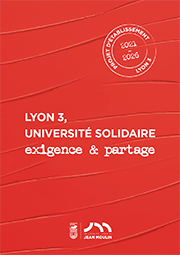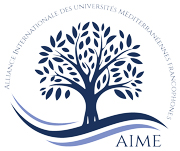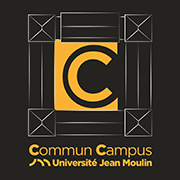AccueilRechercheProgrammes et productions scientifiquesThèsesThèses soutenuesThèses soutenues - 2006-2021Thèses soutenues - 2013
-
Partager cette page
- Recherche,
LI Xiao-Xiu
Translation in Late Qing Era : Imagining a New Nation
Publié le 18 juin 2013 – Mis à jour le 13 février 2015
Thèse en Etudes transculturelles soutenue le 29 mai 2013 en cotutelle avec l'Université Sun Yat Sen (Chine).
La traduction à la fin de la dynastie Qing : pour imaginer une nouvelle nation
En prenant le concept de la ? translated modernity? comme point de départ, cette thèse a pour but d’étudier la relation entre la traduction et un des aspects de la modernité chinoise : la nation à la fin de la dynastie Qing. Nous nous engageons dans cette thèse à scruter les relations complexes entre la traduction, et l’imagination et la construction d’une nouvelle nation à la fin de la dynastie de Qing.
Josephe Levenson observe que le changement le plus remarquable dans la pensée chinoise dans l’histoire moderne de la Chine est une transition de ? tianxia ? (toutes choses sous le ciel, le monde, l’univers, Tout-ce-qui-est-sous-le-Ciel) à ? guojia ? (état, nation ou état-nation ). Cette thèse confirme que la transition de ? tianxia ? à ?guojia? est facilitée par la traduction des savoirs modernes occidentaux à la fin de la dynastie de Qing.
La thèse se base sur l’école du constructionnisme social dans les recherches de la ? nation ? et du ? nationalisme ?. Une ? nation ? est envisagée comme un ? construit social?, c'est-à-dire une entité créée, objectivée ou institutionnalisée. En s’appuyant sur l’analyse de Benedict Anderson sur l’émergence de la nation comme une communauté imaginaire et l’essor du nationalisme partout dans le monde, et en empruntant la méthodologie de ? translingual practice ? proposée par Lydia Liu, cette thèse a pour objectif de répondre aux trois questions suivantes : Comment la traduction de l’époque de fin de la dynastie Qing contribue à la genèse des conditions cognitive et psychologique favorable pour la conception de l’état-nation ? Comment la conception de l‘état-nation a-t-elle été traduite, diffusée et acceptée? Comment les intellectuels de l’époque se servent-ils de la traduction des romans étrangers comme soutien technique ou matériel pour imaginer une nouvelle nation ?
This doctoral dissertation approaches translation as an important site for producing meaning and knowledge, so as to highlight the essential role translation plays in human history, especially to bring more attention to the complex relationship between translation and nation. By adopting as a research model Benedict Anderson’s analysis of the rise of nation as an “imagined community”, and by employing Lydia H. Liu’s “translingual practice” as the main research method, this doctoral thesis aims to explore how translation practices contributed to Chinese people’s imagining of a new “nation” in late Qing era.
This dissertation claims that translation in the late Qing era exerted great influence on Chinese people’s imagining of a modern and new nation: Firstly, translation of western geographic science and the international laws reshaped the world view of people in late Qing era, thus prompting Chinese people to reposition China in relation to the “Other”. Secondly, the western concept of "minzu guojia" was translated into Chinese in late Qing era, and was quickly integrated into political thoughts and popular discourses in China. Constructing a new and strong nation was a common goal and has fostered solidarity in the community. Thirdly, foreign fictions translated into Chinese had strong impacts on Chinese literature in late Qing era, making “fiction” a critical site for the imagining of nation. The future narrative first introduced into China through foreign fiction was quickly adopted as an effective strategy for imagining new China in various literary works. Besides, foreign fictions were very often rewritten for the purpose of enlightening the people for the construction of a strong and independent nation.
Mots clés : La traduction à la fin de la dynastie Qing, Nation, Communauté imaginaire
Key words: Translation in late Qing era, Nation, Imagined community
Directeur de thèse : Gregory LEE
Dong-Feng WANG
Membres du jury :
Bin WANG, Professeur, Université Sun Yat-Sen, Chine
Florent VILLARD, Ma?tre de conférences, HDR, Université Jean Moulin Lyon 3
You Gui WANG, Professeur, Université de Guangdong, Chine
De Chao LI, Professeur assistant, Université de Hong Kong (Hong Kong)
Gregory LEE, Professeur, Université Jean Moulin Lyon 3
Dong Feng WANG Professeur, Université Sun Yat-Sen, Chine
Président du jury : You Gui WANG
Mention : Très honorable
Equipe d'accueil : IETT
En prenant le concept de la ? translated modernity? comme point de départ, cette thèse a pour but d’étudier la relation entre la traduction et un des aspects de la modernité chinoise : la nation à la fin de la dynastie Qing. Nous nous engageons dans cette thèse à scruter les relations complexes entre la traduction, et l’imagination et la construction d’une nouvelle nation à la fin de la dynastie de Qing.
Josephe Levenson observe que le changement le plus remarquable dans la pensée chinoise dans l’histoire moderne de la Chine est une transition de ? tianxia ? (toutes choses sous le ciel, le monde, l’univers, Tout-ce-qui-est-sous-le-Ciel) à ? guojia ? (état, nation ou état-nation ). Cette thèse confirme que la transition de ? tianxia ? à ?guojia? est facilitée par la traduction des savoirs modernes occidentaux à la fin de la dynastie de Qing.
La thèse se base sur l’école du constructionnisme social dans les recherches de la ? nation ? et du ? nationalisme ?. Une ? nation ? est envisagée comme un ? construit social?, c'est-à-dire une entité créée, objectivée ou institutionnalisée. En s’appuyant sur l’analyse de Benedict Anderson sur l’émergence de la nation comme une communauté imaginaire et l’essor du nationalisme partout dans le monde, et en empruntant la méthodologie de ? translingual practice ? proposée par Lydia Liu, cette thèse a pour objectif de répondre aux trois questions suivantes : Comment la traduction de l’époque de fin de la dynastie Qing contribue à la genèse des conditions cognitive et psychologique favorable pour la conception de l’état-nation ? Comment la conception de l‘état-nation a-t-elle été traduite, diffusée et acceptée? Comment les intellectuels de l’époque se servent-ils de la traduction des romans étrangers comme soutien technique ou matériel pour imaginer une nouvelle nation ?
This doctoral dissertation approaches translation as an important site for producing meaning and knowledge, so as to highlight the essential role translation plays in human history, especially to bring more attention to the complex relationship between translation and nation. By adopting as a research model Benedict Anderson’s analysis of the rise of nation as an “imagined community”, and by employing Lydia H. Liu’s “translingual practice” as the main research method, this doctoral thesis aims to explore how translation practices contributed to Chinese people’s imagining of a new “nation” in late Qing era.
This dissertation claims that translation in the late Qing era exerted great influence on Chinese people’s imagining of a modern and new nation: Firstly, translation of western geographic science and the international laws reshaped the world view of people in late Qing era, thus prompting Chinese people to reposition China in relation to the “Other”. Secondly, the western concept of "minzu guojia" was translated into Chinese in late Qing era, and was quickly integrated into political thoughts and popular discourses in China. Constructing a new and strong nation was a common goal and has fostered solidarity in the community. Thirdly, foreign fictions translated into Chinese had strong impacts on Chinese literature in late Qing era, making “fiction” a critical site for the imagining of nation. The future narrative first introduced into China through foreign fiction was quickly adopted as an effective strategy for imagining new China in various literary works. Besides, foreign fictions were very often rewritten for the purpose of enlightening the people for the construction of a strong and independent nation.
Mots clés : La traduction à la fin de la dynastie Qing, Nation, Communauté imaginaire
Key words: Translation in late Qing era, Nation, Imagined community
Directeur de thèse : Gregory LEE
Dong-Feng WANG
Membres du jury :
Bin WANG, Professeur, Université Sun Yat-Sen, Chine
Florent VILLARD, Ma?tre de conférences, HDR, Université Jean Moulin Lyon 3
You Gui WANG, Professeur, Université de Guangdong, Chine
De Chao LI, Professeur assistant, Université de Hong Kong (Hong Kong)
Gregory LEE, Professeur, Université Jean Moulin Lyon 3
Dong Feng WANG Professeur, Université Sun Yat-Sen, Chine
Président du jury : You Gui WANG
Mention : Très honorable
Equipe d'accueil : IETT
Documentation
Mise à jour : 13 février 2015







